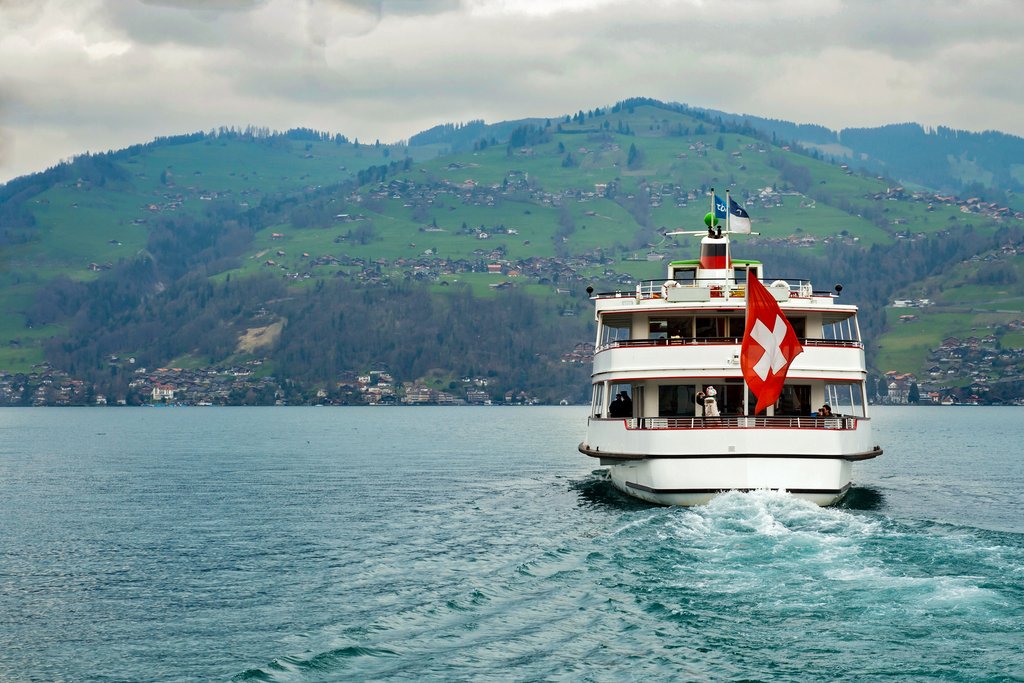While fossil-free vehicles are increasingly being used on the roads, diesel engines continue to dominate shipping on Swiss waters. This should change in order to reach the political goal of net-zero by 2050. On behalf of the Swiss Federal Office of Transport and several cantons, INFRAS is investigating the prospects for the decarbonization of shipping in Switzerland.

In Switzerland, shipping is particularly important for tourism and freight transport. It is also important for the mobility of the resident population at the regional level, especially on the large lakes, where commuters can sometimes reach their destination more comfortably and quickly by water than by car or train.
The 150 or so vessels operated by federally licensed shipping companies carry a good 13 million passengers a year on Swiss waters. Almost all of them run on diesel. Shipping accounts for about 6% of the greenhouse gas emissions from public transportation.
Many technological hurdles to overcome
Reducing CO2-emissions is a key concern for all Swiss shipping companies, but it is also an odyssey - only 13 electric-powered public transport vessels are currently in service, and ships have a very long service life of around 30 to 50 years, making a short-term transition difficult or economically challenging. In addition, unlike road transport, shipping is still in the early stages of this transformation process technologically - the range of market-ready models for alternative propulsion technologies is small and the investment costs are high.
Experience to date shows that battery propulsion has proven its worth in some cases. However, for vessels with long operating times and distances, the choice of technology is still open.
Decarbonization scenarios to 2050
A study commissioned by the Swiss Federal Office of Transport (FOT) and several cantons aims at identifying possible perspectives for the decarbonization of waterborne transport. To this end, INFRAS will examine the potential and limits of fossil-free propulsion technologies in shipping, whether the necessary energy sources will be available in the long term, and how much such a transition could cost. Results are expected in 2026.
The project includes:
- an inventory of the public shipping companies' vessels,
- an analysis of best practice examples for the use of fossil-free propulsion technologies in passenger shipping,
- investigation and assessment of possible fossil-free propulsion technologies such as electric, hydrogen or synthetic fuels, including their requirements for charging and refueling infrastructure,
- an impact analysis of the environmental and cost consequences of decarbonization,
- the development of national decarbonization scenarios for Swiss passenger shipping with a time horizon up to 2050,
- recommendations for action.
Further information:
- FOT: ESPT newsletter September 2025 (in German)
Other INFRAS articles on related topics:





